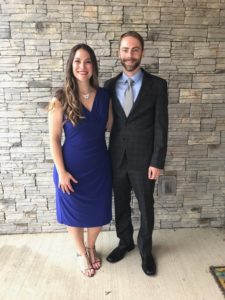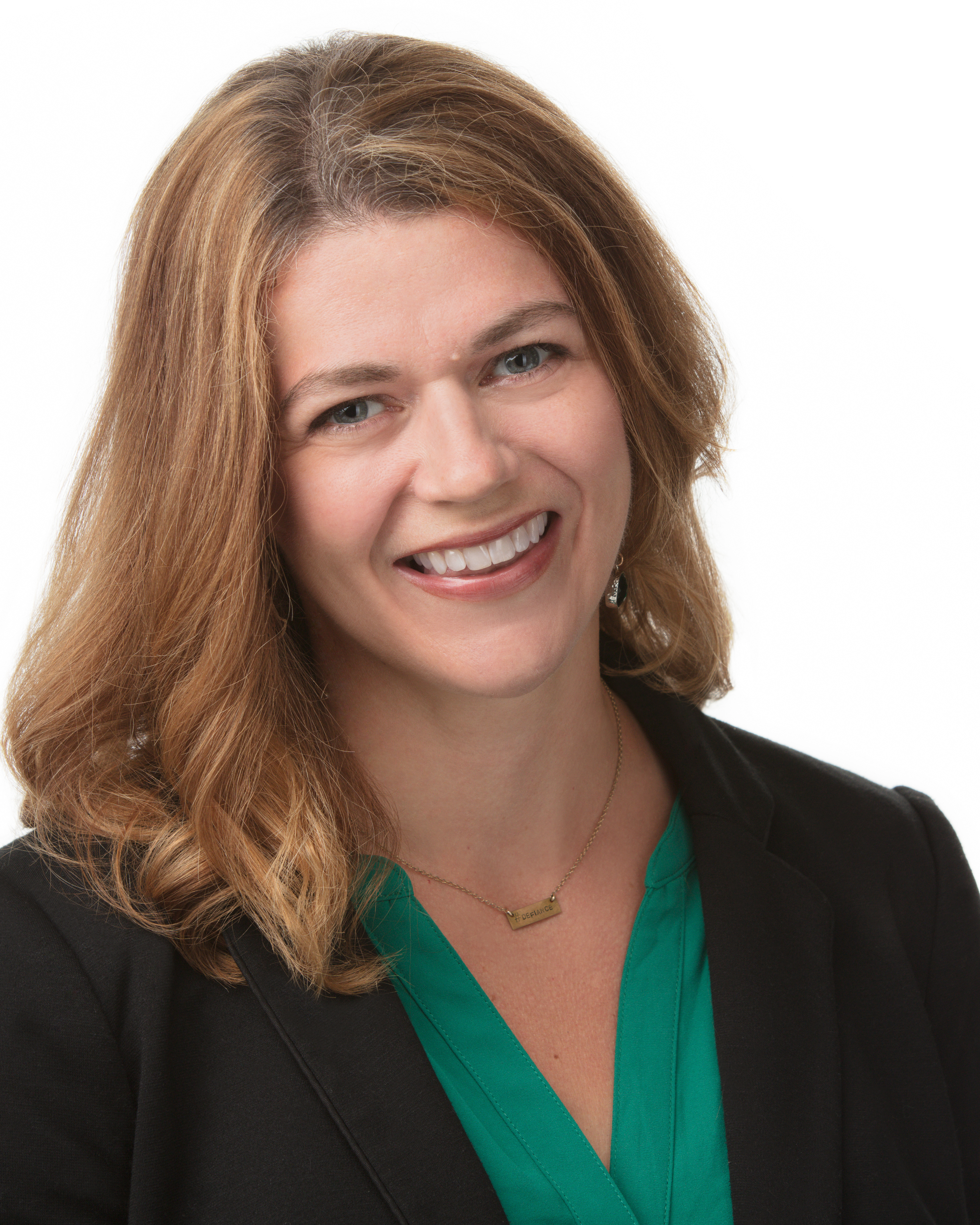Ever since high school, Jonathan Katz wanted to undergo genetic testing. Jonathan is of Eastern European Jewish descent and was aware of the increased frequency of certain genetic conditions in people of Jewish ancestry. Jonathan’s brother eventually introduced him to an organization called JScreen that offers genetic screening for an extensive list of inherited conditions. In 2017 Jonathan and his wife, Christa,  who does not have Ashkenazi Jewish ancestry, were just starting to think about having a family together. To better inform their family planning process, Jonathan decided the time was right for him to get tested. The plan was for Jonathan to test first, and if he was found to be a carrier for any condition, Christa would also get tested for that condition. Most of the conditions on the JScreen list are inherited in an autosomal recessive manner, so both Jonathan and Christa would have to be carriers of the same condition in order for a child of theirs to be at risk.
who does not have Ashkenazi Jewish ancestry, were just starting to think about having a family together. To better inform their family planning process, Jonathan decided the time was right for him to get tested. The plan was for Jonathan to test first, and if he was found to be a carrier for any condition, Christa would also get tested for that condition. Most of the conditions on the JScreen list are inherited in an autosomal recessive manner, so both Jonathan and Christa would have to be carriers of the same condition in order for a child of theirs to be at risk.
Testing revealed that Jonathan is a carrier for congenital adrenal hyperplasia (CAH). And following further testing, the couple found out that Christa is a carrier as well. Jonathan said “We were kinda surprised when it came back the same thing” to which Christa replied, “That’s an understatement. I was shocked!”
The Condition
CAH is a condition that affects the adrenal gland and impacts the production of three steroid hormones including cortisol, aldosterone, and testosterone. Females with the classic form are born with ambiguous genitalia. Both genders can experience an adrenal crisis involving diarrhea, vomiting, dehydration, low blood sugar levels and shock that may be life threatening. The non-classic form is milder with symptoms appearing in adolescence or early adulthood that mainly involve irregular periods, abnormal growth of facial and body hair, and severe acne.
At the time of testing, CAH wasn’t on the Katz’ radar at all. Their results caused a total shift in their planning process for starting a family. Christa had recently finished her training as a nurse and had a cursory understanding of the classic form of CAH, but the couple felt like they really needed to understand the potential implications of the disorder before deciding how or if they would try to get pregnant. A fertility genetic counselor suggested they meet with a pediatric endocrinologist who offered them a tangible picture of the spectrum of symptoms that can be associated with the condition. This was one of the most helpful steps they took after finding out about their carrier status.
Trying to Conceive
When the couple first received their carrier results, a genetic counselor with JScreen mentioned pre-implantation genetic testing (PGT-M) as an option for family planning. At the time, they considered assisted reproductive technologies like IVF with PGT but were encouraged by the meeting with the pediatric endocrinologist and decided to try to conceive naturally first. Jonathan and Christa have been trying to have a baby on their own for the past 18 months. So far, they have been unsuccessful. The experience of infertility has been an emotional roller coaster, particularly for Christa, as she wrestles with “the two wrenches” in their efforts to have a baby. The couple is now circling back to the idea of IVF with PGT and plan to begin this process in early 2020.
There are many factors that have influenced the Katz’ decision to pursue IVF with PGT. One of the main things is cost. The entire process was more expensive than they thought, so it has taken some financial planning and preparation to be able to afford the procedure. That’s a common concern for many couples, and an important consideration when evaluating options and timelines for conceiving a pregnancy. Second to cost was simply understanding the disease process. The fact that CAH exists on a spectrum and there is no guarantee of where a child would fall on that spectrum was somewhat reassuring as they realized a child that inherited their mutations may not have a classic case of CAH. Finally, now that it appears they will likely need assisted reproductive technology to conceive a pregnancy, they feel confident that pursuing IVF with PGT is the right call.
Sharing Their Story
Throughout the process so far, Jonathan and Christa have been transparent with their family and friends about their struggles. Jonathan says that one of the reasons he’s been so open is because “I think it’s a good thing to do this genetic testing…I want to get the word out. It’s something other people should consider even if they’re not Jewish.” For Christa, sharing her story has been more about finding emotional support. In discussing her infertility struggles in particular, she’s noticed that a lot of people have gone through the same thing. In fact, 1 in 8 couples have trouble getting pregnant or carrying a pregnancy to term. This realization has been helpful in understanding how common infertility is and in regaining hope about growing her future family.

So, for the Katz, 2020 is the Year of the Baby! Jonathan and Christa are excited about moving forward, especially after the disappointment of the last 18 months, but there are real fears too. Jonathan worries about the stress the process will put on the couple. Christa fears it won’t work and grapples with identifying at what point they would call it quits.
Jonathan and Christa’s narrative is a poignant example of the complexity of conception. Sometimes, it is not as simple as just deciding to have a baby. Sometimes, starting a family has to be a very intentional process. It is valid to mourn the loss of that simplicity while being excited about the potential of this more complex route to help achieve a pregnancy. Given the frequency of infertility, there is a growing number of couples who find themselves dealing with those “two wrenches” – a heritable genetic condition AND infertility. In these cases, IVF with PGT is a viable option that can help address both issues simultaneously.
Jonathan’s desire to spread the word about the value of genetic carrier screening is echoed in our work at Sharing Healthy Genes and by JScreen. It is important to know that expanded carrier screening is available for anyone, regardless of ancestry. Click here for more information. If you would like to learn more about carrier screening through JScreen, please visit their website at www.jscreen.org.

Jessica Greenwood is an independent consultant to Sharing Health Genes. As a licensed genetic counselor and digital health consultant, she works with health-related organizations looking to deliver memorable messages of health in the digital space. Mrs. Greenwood started her career in a clinical role, working for eight years as a preconception and prenatal genetic counselor before transitioning to industry. Mrs. Greenwood completed a year-long certificate program in Digital Health Communication at Tufts University that spearheaded her work in digital health. She now consults with health-related organizations, assisting with the creation and execution of a digital strategy including the development of health literate patient-centered educational materials. Mrs. Greenwood earned a Bachelor of Science degree from North Carolina State University with a minor in Genetics and a Master of Science in Genetic Counseling from the University of North Carolina at Greensboro.
